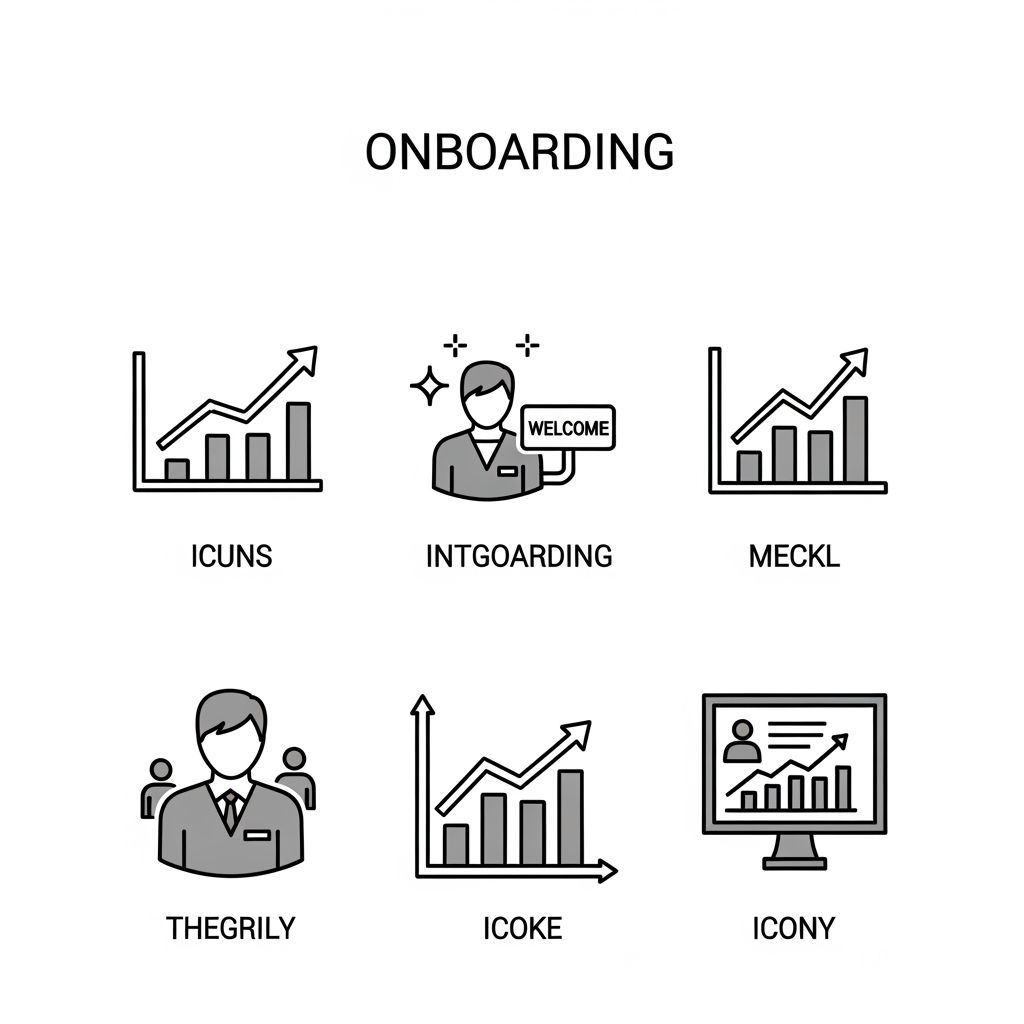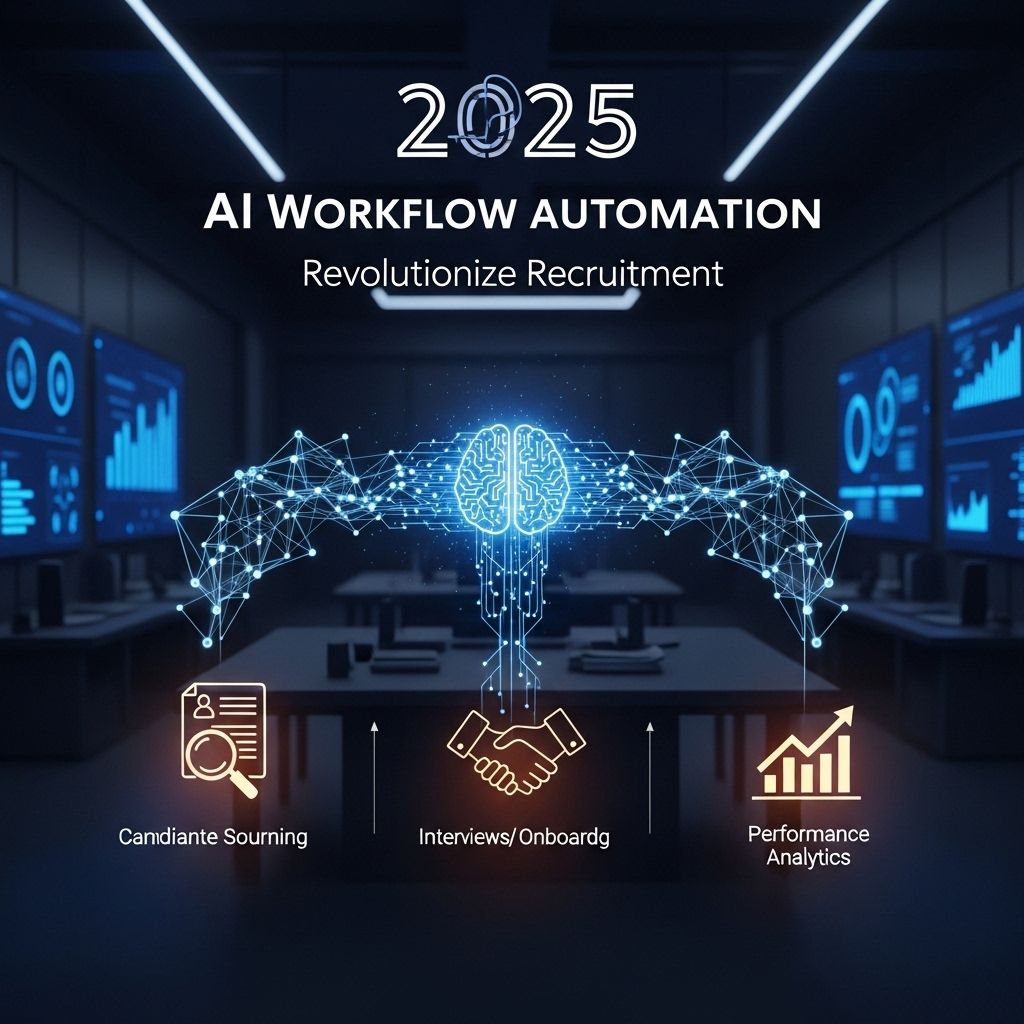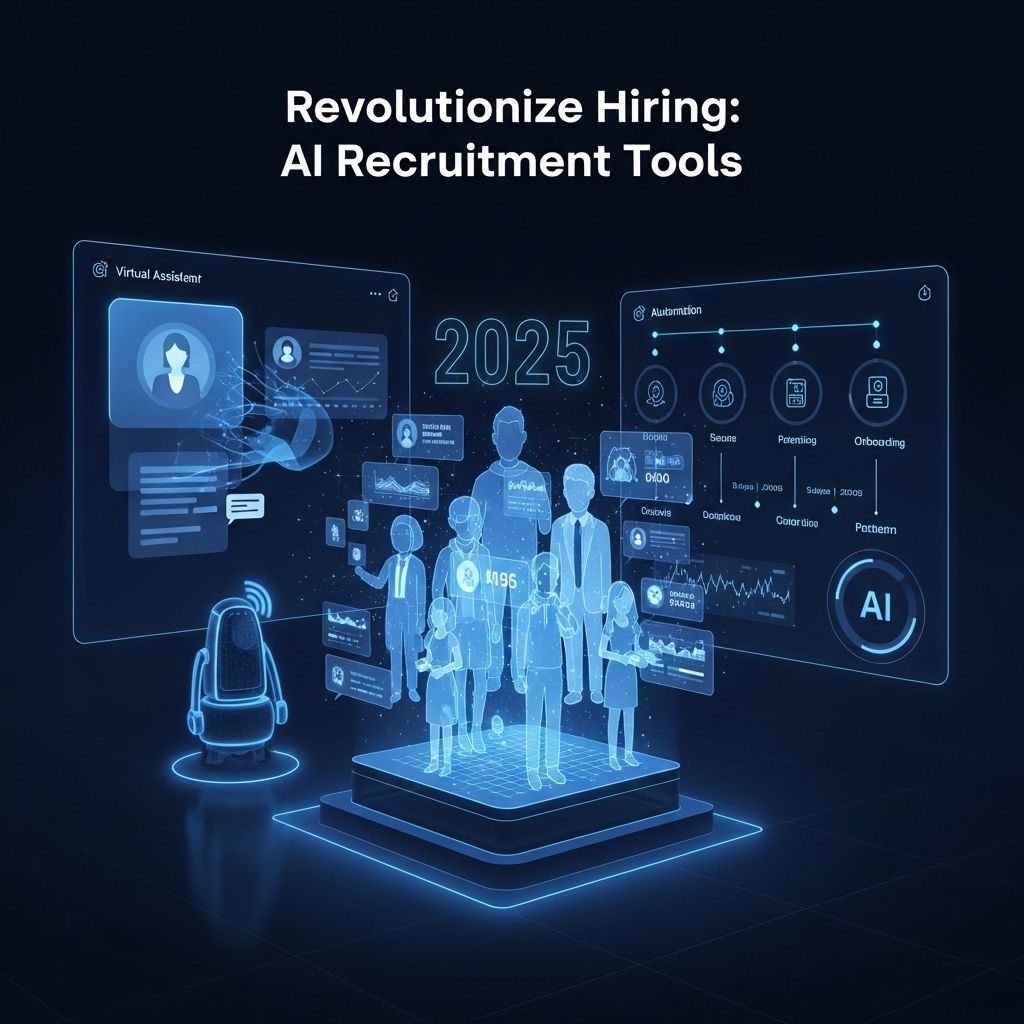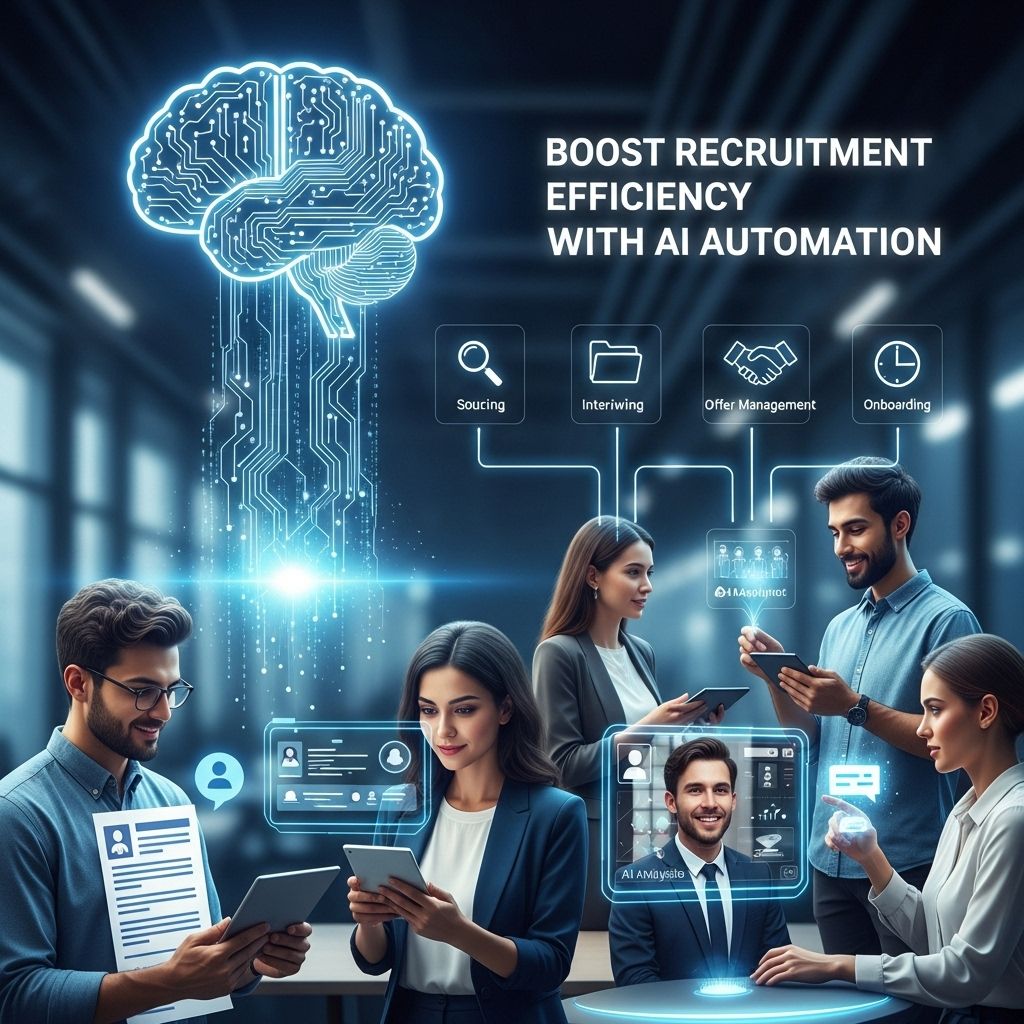Unlock Recruitment Success with Top AI Tools
Discover the best AI tools that streamline your recruitment workflow and enhance candidate selection for optimal hiring success.

In the fast-paced world of recruitment, efficiency and precision are paramount. As organizations strive to attract top talent, leveraging cutting-edge technology becomes a necessity. Enter AI tools, which are revolutionizing the recruitment process by streamlining workflows, enhancing candidate experiences, and improving decision-making. In this article, we will explore the most effective AI tools that facilitate recruitment workflow success, examining their functionalities, benefits, and how they can transform traditional hiring practices.
In today’s competitive landscape, leveraging top AI tools can dramatically enhance your recruitment strategies. These technologies streamline processes, making it easier to identify the right candidates efficiently. For more insights into innovative design tools that can aid your branding efforts, view 3D logo variations.
Table of Contents
Understanding AI in Recruitment
Artificial Intelligence (AI) encompasses a variety of technologies that enable machines to simulate human intelligence processes. In recruitment, AI can analyze vast amounts of data, recognize patterns, and make predictions, all of which can significantly improve hiring strategies. Below, we will delve into specific AI tools that are reshaping the recruitment landscape.
Key AI Tools Transforming Recruitment Workflows
1. Applicant Tracking Systems (ATS)
Applicant Tracking Systems that utilize AI capabilities help organizations manage the recruitment process more efficiently. Here are a few top ATS platforms:
- Greenhouse: Offers a structured hiring process with customizable workflows.
- Lever: Allows collaboration among teams and provides insights through analytics.
- Workable: Easy job posting, resume filtering, and candidate tracking.
2. AI-Powered Screening Tools
These tools automagically sift through applications, identifying top candidates based on predefined criteria:
| Tool | Features | Benefits |
|---|---|---|
| HireVue | Video interviewing, predictive analytics | Reduces time to hire, improves candidate quality |
| Pymetrics | Game-based assessments, bias reduction | Enhances diversity, improves candidate fit |
| Paradox | Chatbot functionality, scheduling | Increases efficiency, enhances candidate experience |
3. Sourcing Tools
Sourcing candidates can be time-consuming, but AI-driven tools help identify potential hires across multiple platforms:
- LinkedIn Talent Insights: Provides data-driven insights about talent pools.
- Hiretual: Integrates with various platforms to find passive candidates.
- Entelo: Utilizes predictive analytics to find ideal candidates.
Automated Communication and Engagement
Effective communication is crucial in recruitment. AI tools can automate routine interactions, ensuring timely updates for candidates. Here are a few notable tools:
1. Chatbots
Chatbots provide instant responses to candidate inquiries, schedule interviews, and collect feedback. Examples include:
- Mya: AI-driven chatbot that engages candidates throughout the hiring process.
- Olivia: Offers 24/7 responses and automates candidate scheduling.
2. Email Automation Tools
Email automation tools allow recruiters to send personalized messages to candidates at scale. Key options include:
| Tool | Features | Benefits |
|---|---|---|
| Mailchimp | Segmentation, A/B testing | Increases engagement, optimizes campaigns |
| Outreach | Multichannel communication, analytics | Enhances follow-up, improves response rates |
Data Analytics and Reporting
Analytics play a vital role in evaluating the effectiveness of recruitment strategies. AI-driven analytics tools help recruiters make informed decisions:
1. Predictive Analytics
Predictive analytics tools analyze historical recruitment data to forecast future hiring trends:
- Jobvite: Offers insights into candidate behavior and preferences.
- SmartRecruiters: Provides actionable reporting and analytics features.
2. Diversity Tracking Tools
Ensuring a diverse workforce is a priority for many organizations. AI tools can help track diversity metrics:
- Textio: Analyzes job descriptions for inclusive language.
- Jopwell: Focuses on connecting diverse candidates with job opportunities.
The Future of Recruitment with AI
As AI continues to evolve, its integration into recruitment workflows will only deepen. Future trends may include:
- Enhanced Candidate Experience: Tailored communication and engagement strategies.
- Composable Recruitment Systems: The ability to integrate various AI tools seamlessly.
- Increased Predictability: Better forecasting of hiring needs and candidate success.
Conclusion
In conclusion, AI tools are not just a passing trend in recruitment; they are essential components for modern hiring strategies. By adopting these technologies, organizations can enhance their recruitment workflows, improve candidate experiences, and ultimately secure the best talent. As the industry continues to innovate, staying informed about AI advancements will be crucial for any recruitment professional looking to succeed in a competitive market.
FAQ
What are the best AI tools for recruitment?
Some of the top AI tools for recruitment include HireVue, Pymetrics, and HiredScore, which help streamline the hiring process through candidate assessment and data analysis.
How can AI improve the recruitment workflow?
AI can enhance the recruitment workflow by automating repetitive tasks, providing data-driven insights for candidate selection, and improving the overall candidate experience.
What features should I look for in AI recruitment tools?
Look for features such as candidate sourcing, automated screening, interview scheduling, and analytics capabilities to help you make informed hiring decisions.
Are AI recruitment tools suitable for small businesses?
Yes, many AI recruitment tools are scalable and can be tailored to fit the needs of small businesses, helping them compete for top talent with limited resources.
How does AI ensure unbiased recruitment processes?
AI can help reduce bias by focusing on data-driven criteria and removing human subjectivity from the initial screening process, though regular monitoring is essential to maintain fairness.




